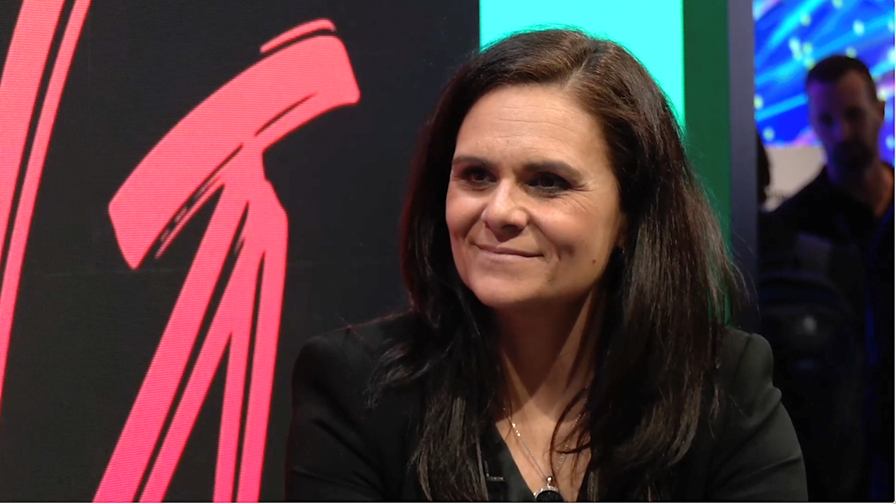
Maria Cuevas, networks research director and distinguished engineer at BT, talks to TelecomTV at MWC24 in Barcelona.
- Telcos realise they need to transform their networks for operational and environmental efficiencies
- BT’s Maria Cuevas shares her vision for the technologies that will help on this journey
- The impact of AI and quantum computing are key areas of focus for the UK telco giant’s R&D team
As operators all over the world strive to improve the efficiency, security and operational capabilities of their networks, BT is well on its way to testing new technologies in a bid to find novel ways to plan, operate and secure its networks.
The UK operator is joining a plethora of telcos around the world that are now eyeing new technologies to help them transform their networks. Perhaps unsurprisingly, such pivotal innovation is now largely believed to lie in AI and machine learning (ML).
These two technologies were also pinpointed by Maria Cuevas, networks research director and distinguished engineer at BT, who spoke with TelecomTV at Mobile World Congress (MWC) 2024 in Barcelona to update us on the telco’s network transformation journey. She explained that AI is seen as a key element not just at MWC but around the wider ecosystem as well. “Especially for us at BT, we believe it’s going to have a massive impact on the way we operate our networks – not just on how we operate, but how we build and how we plan our networks”, noted Cuevas.
AI and ML will not only affect the way the company streamlines its networks, she added, but also the way it can deliver the quality of experience that customers need and expect. Her research team is looking into how to monitor, predict and remedy faults using technologies such as AI. “We really need to rethink the way we do things in telecoms across the entire industry, to apply the best of whether it’s AI, whether it’s hardware, [or] coming capabilities in that space, to make sure that we get the most [out] of those technologies to do the things that we do in a much better way,” emphasised Cuevas.
BT’s network research head noted that the operator is also exploring another type of innovation in the form of preparing the networks, making them resilient and ensuring customer safety in the era of quantum computing.
Describing quantum developments as “the next big thing” for the industry, she acknowledged that BT views them as both an opportunity and a threat. “We see the opportunity for quantum, and we are also exploring ways to leverage quantum for our own planning and networking capabilities. But we also see the threat and, of course, there are bad actors out there wanting to, perhaps, attack not just ourselves but our customers,” explained Cuevas.
To tackle this, the BT team is “at the forefront of our research” in quantum key distribution (QKD) – a type of technology, which distributes encryption keys on individual particles (photons), a method that is expected to bring more advanced security capabilities.
She highlighted BT’s commercial quantum-secured metro network in London, which it announced as a world first in April 2022, alongside partner Japanese technology company Toshiba. When it was launched, consulting giant Ernst & Young (EY) was announced as its first major customer to trial the network, and in July 2023 BT also attracted banking giant HSBC to test its innovation.
Cuevas emphasised that BT’s work on the quantum-secured metro network is “making really good progress, is having a lot of traction and [receiving] a lot of interest – and we intend to continue [on] that journey to protect communications for our customers”.
BT’s networks research chief also offered her views on the impact of disaggregation on the access network, and shared more about other exciting areas in her research work at BT. To find out more, watch the full interview – MWC24: BT’s Maria Cuevas on AI’s role in network transformation.
- Yanitsa Boyadzhieva, Deputy Editor, TelecomTV
Email Newsletters
Sign up to receive TelecomTV's top news and videos, plus exclusive subscriber-only content direct to your inbox.




